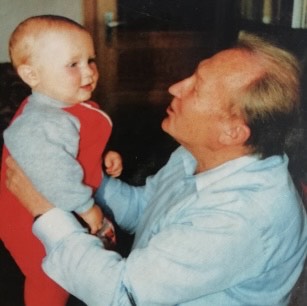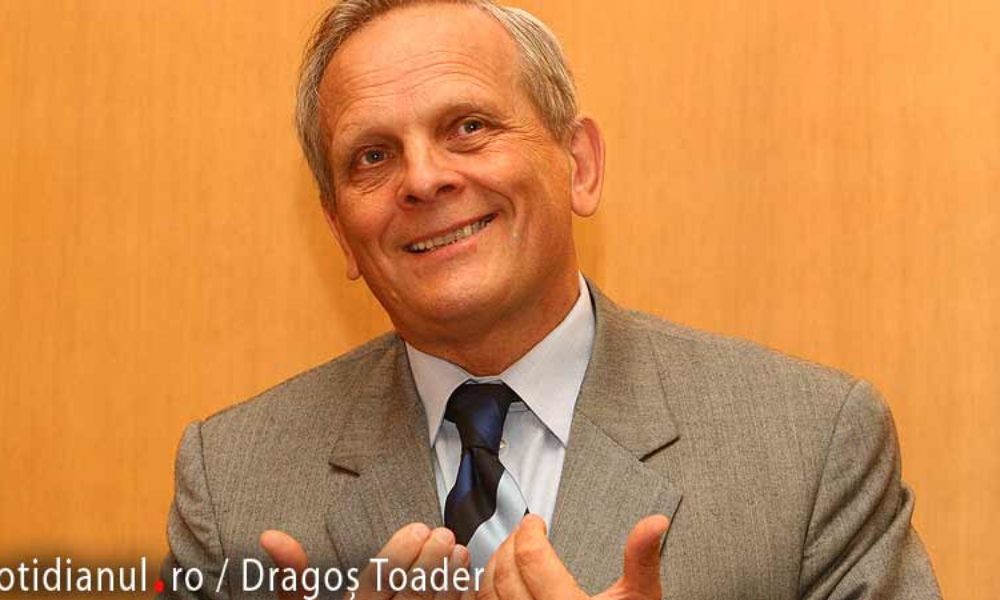Son is giving up, leaving, and we cannot help him with anything

After returning from the army to Lithuania, Algimantas began looking for a medical job.
« I managed to get a job as a pediatrician (pediatrician) in Pakruojis, » the doctor recalls. « After half a year I got an apartment there. »
According to Algimantas, his workload was really huge at the time.
« I worked as a pediatric pediatrician in Pakruojis, I needed to go to the so-called Felcher-Ikacheral points to provide assistance in places, » the doctor recalls.
However, not all those points were possible to provide the necessary assistance, and one or two posts were unable to serve the whole area. The patient was then transported to the district central hospital.
« We were only two pediatricians and we had to serve the entire Pakruojis district, » the doctor recalls.
According to the doctor, there were often severe cases where the child had difficulty breathing and torturing shortness of breath, which was very dangerous and could complicate the obstruction and death of the respiratory tract.
Photo by Personal Archive
« The biggest gift was when I was given help, whether his parents smiled at me, saying a good word, » Algimantas recalls. « Then I really forgotten the sleepless night and fatigue. »
However, in the work of a district pediatrician alone in Pakruojis, the doctor did not limit himself, he wanted to improve in his field and entered part -time postgraduate studies at Vilnius University, and began collecting material for his dissertation.
After five years of work in Pakruojis, Algimantas and his family moved to Vilnius and started teaching at the Department of Children’s Diseases at Vilnius University. However, he did not go through practical work – he worked at Antakalnis Hospital in the Baby Department.
Algimantas with his granddaughter Liutauru
« There was a lot of work at the hospital, and we had to work not only for the entire city of Vilnius, but also in Vilnius, » the doctor remembers.
According to Algimantas, during his practice, children’s meningococcal infection was a big problem, there were no vaccinations from it yet, and the consequences of the disease were terrible.
« In severe consequences of meningococcal infection, especially in children under the age of 5, they had to amputate fingers and even limbs, but it didn’t always help, » says Algimantas. « Some serious cases ended in death. »
In 1975, Algimantas defended his medical science candidate (currently in line with a doctorate of medical sciences) and was awarded the title of Associate Professor in 1979.
Algimantas’ family
Almost all doctors in Algimantas’ family – his wife is a well -known dentist, and his daughter graduated.
« My son Lin was born in Pakruojis, » says the doctor. « He graduated very well in Vilnius and, to our surprise, chose to study at the Lithuanian Academy of Agriculture.

Awarding Linen diplomas
In Germany, Linas also studied very well and Halle University offered him to write scientific work in agrochemistry. Lin agreed, wrote a scientific work, defended his dissertation in Germany and received a doctorate in agriculture.
After studying and defending his research work, Lin returned to Lithuania and after winning the competition was admitted to the Lithuanian Ministry of Agriculture. Linas married a Lithuanian girl with whom he met in Germany, but the married life did not last long and he returned to his parents’ apartment, where he lived with his parents and four -year -old sister.
Restless signs of a son’s health
« My son’s Lin’s disease started to all of us very unexpectedly, » recalls doctor Algimantas. « One Saturday he suddenly became very sleepy, and he started big headaches. »
He was taken to the Santara Clinic Acceptance Unit, which did a lot of research on Lin. A computed tomography study showed that Lin had a newborn brain that was needed to operate.
The examination of brain cells taken during surgery showed a very aggressive malignant tumor – cancer.
« Being a doctor myself, of course, I started reading everything I could just, about the treatment of brain tumors in English, » the doctor remembers.
Algimantas realized that his son’s disease was very severe and dangerous and needed immediately with urgent treatment.
« Linas then received all the necessary treatment: surgical (tumor removal), medical (chemotherapy) and radiation (radiotherapy), » the doctor recalls.
However, the situation was difficult because it is impossible to remove the tumor from all brain as it spreads to cells further.
Attempting to destroy diseases of the sick cells or radiation therapy is not always the case, because not all cells are killed.
Linen
« Linen’s disease was very insidious and bad in that it tended to regenerate, regardless of what treatment is used, » says Algimantas. « After the first surgery, it seemed fine, but the disease was complicated, the tumor was renewed, and it took a second surgery, » says Algimantas. «
« After the second surgery, the son was treated in the Santara Clinic Rehabilitation Unit and then nursed at home, » says Algimantas. « I am very grateful to the Santara Clinic Family Medical Center, which helped us so much. »
However, the family realized after a while that it was impossible to give the son the necessary help at home.
Photo by Personal Archive
First acquaintance with hospice
« The time came when linen nursing at home was simply unable to physically and morally, » Algimantas recalls. « It was extremely difficult to see the son’s suffering, knowing that the son is wasting, going out, and we can’t help him, no matter how much we try. »
This is how one day, just physically no longer able to put his son out of bed to a stroller, his parents called the pal. Fr. Michael Sopochka’s hospice and asked for help.
Algimantas confesses that he was encouraged by his acquaintance, who responded well to his hospice and praised the quality of his sick care.
« I was personally very surprised when I found out that patients in hospice are not only nursed but also treated, » says Algimantas. « Every patient is assigned a specialist who takes the appropriate decisions, prescribes treatment and medication. »
Algimantas confesses that he was also pleasantly settled by hospice staff.
Linen with parents and children
« Hospis staff is a special, loving person, » says Algimantas. « We have seen that hospice is amazing order and cleanliness, staff smiles, are kindly communicated.
« The hospice of the blessed priest Mykolas Sopočka is an endless body of all suffering, » Algimantas shares his thoughts. « This is, I would say a blessed place, because the help of hospital (professional care of patients 24 hours a day, psychological help to the patient and his relatives) is not possible. »
According to the doctor, a person lives once and wants to live as long as possible. Nursing at home, being together, supporting the hand, of course, is extremely important, but it does not extend his life days or months.
Only a specialized body can ensure quality nursing for a serious patient.
Hospice – The word itself means that it is a place of treatment, care and nursing of serious illnesses, which aims to alleviate the suffering of people in disaster.
Linen wondered
« We started to shout Hospis for help, because at home we really couldn’t give our son professional help around the clock, » the doctor shares. which is necessary for the patient. ”
If a person can no longer move himself, no longer controls the body, relatives who are nearby are not always capable of doing so at home. This can only be done by a specialized body with dedicated, calm personnel who can sympathize with the sick.
« Not everyone can work in the hospice, because there is a great deal of suffering every day, » Algimantas shares his thoughts. « Hospice staff must be strong, loved by a person who is suffering,
Hospice with the hardest moments of life
A serious illness at any time can touch each of us or our loved ones, to break our lives, to trample dreams.
More than 260 Vilnius Pal. Fr. Mykolas Sopočka Hospice specialists and volunteers are every moment with those who fight fatal disease, experience great pain, fear and uncertainty.
The help of hospice for adults and children at home and inpatient children is free and accessible around the clock. Help the seriously ill, devote your 1.2 percent PIT Vilnius Pal. Fr. Michael Sopochka’s hospice!





/s3/static.nrc.nl/wp-content/uploads/2025/06/07171846/web-0706nws_ozempic-nieuw.jpg)

